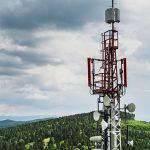
New General Telecommunications Law and the prohibition of commercial calls without consent
Through the new General Telecommunications Law, which aims to promote the digital transformation process in Spain in accordance with the strategy followed at European level, the European Directives on better regulation and citizens’ rights, as well as the Regulation of the Body of European Regulators for Electronic Communications, have been incorporated into the Spanish legal system.
In this sense, this regulation will uniformly regulate the electronic communications networks and services sector, excluding from its scope of application the regulation of audiovisual communication services and Information Society services.
In view of the above, this regulation also protects the rights of end users of telecommunications services and, specifically, it contains a provision in its articles on the right of users not to receive unwanted commercial calls from companies unless there is prior consent from the person in question to receive such calls.
When will this measure come into effect?
This measure is expected to be applied as from June 29, 2023 since, although the new General Telecommunications Law was published in the Official State Bulletin (BOE) on June 29, 2022, there will be a year’s margin to enforce the right of end users not to receive unwanted calls for commercial communication purposes unless they have expressly consented to it.
However, until then, the user has the possibility of opposing to this type of commercial practices and must be informed of this right.
Other aspects included in the New General Telecommunications Law
In addition to the above, this new Law incorporates other new aspects, some of which are detailed below:
- The Registry of Operators, under the National Markets and Competition Commission (CNMC), must be notified of the authorization to install and operate networks or provide services under free competition.
- To guarantee adequate high-speed connectivity to the population, including rural areas, and to ensure that all operators offer universal service at affordable prices to the most vulnerable users.
- The functions of 112 are extended, allowing free access to emergency services to all users of number-based interpersonal communications services and allowing a more precise location of the people who make a call to 112.
- It establishes the possibility for telecommunications operators to transmit public alerts in cases of major catastrophes or imminent or ongoing emergencies.
- The transparency of contracts entered into between operators and users is increased, and a maximum duration of 2 years is established.
- Consumers will have the right for operators to provide them with information on better rates at least once a year and to have cost control mechanisms.
- The right to keep the number if the consumer terminates the contract with one operator and contracts with another for one month, unless he/she waives this right and portability within one working day.
- The terms of concessions of rights of use of the public radioelectric domain are extended with a minimum duration of 20 years and a maximum of up to 40 years.

Letslaw es una firma de abogados internacionales especializada en el derecho de los negocios.







